Search
Did you mean: Levant?
Search Results
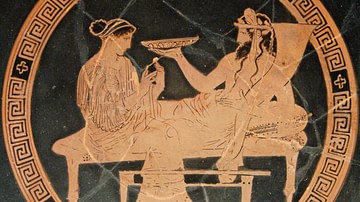
Definition
Persephone
Persephone (aka Kore) was the Greek goddess of agriculture and vegetation, especially grain, and the wife of Hades, the ruler of the Underworld. Persephone was an important element of the Eleusinian Mysteries and the Thesmophoria festival...
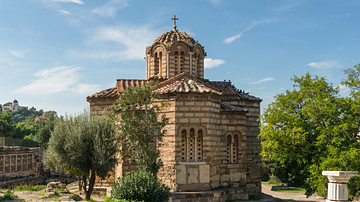
Definition
Byzantine Architecture
The architecture of the Byzantine Empire (4th - 15th century CE) continued its early Roman traditions but architects also added new structures to their already formidable repertoire, notably improved fortification walls and domed churches...

Definition
Selene
Selene (also known as Mene) is the personification and goddess of the moon in Greek mythology. Every night, she travels across the sky in her chariot, pulling the moon behind her. Selene is the daughter of the Titans Hyperion and Theia. She...
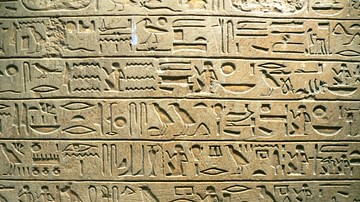
Definition
Ancient Egyptian Literature
Ancient Egyptian literature comprises a wide array of narrative and poetic forms including inscriptions on tombs, stele, obelisks, and temples; myths, stories, and legends; religious writings; philosophical works; wisdom literature; autobiographies...
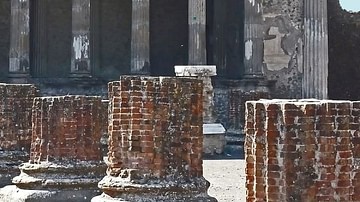
Definition
Roman Law
Roman laws covered all facets of daily life. They were concerned with crime and punishment, land and property ownership, commerce, the maritime and agricultural industries, citizenship, sexuality and prostitution, slavery and manumission...
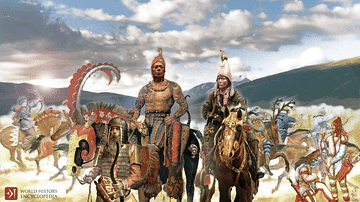
Definition
Scythians
The Scythians were a nomadic people whose culture flourished between the 7th and 3rd century BCE in a territory ranging from Thrace in the west, across the steppe of Central Asia, to the Altai Mountains of Mongolia in the east. This covers...

Definition
Homer
Homer (c. 750 BCE) is perhaps the greatest of all epic poets and his legendary status was well established by the time of Classical Athens. He composed (not wrote, since the poems were created and transmitted orally, they were not written...

Definition
Homo Erectus
Homo erectus, or 'upright man', is an extinct species of human that occupies an intriguing spot within the human evolutionary lineage. These prehistoric hunter-gatherers were highly successful in adapting to vastly different habitats across...
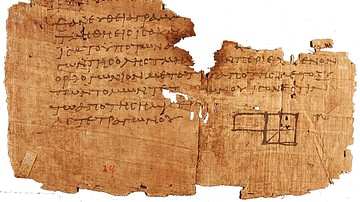
Definition
Ancient Greek Science
Ancient Greek science is a modern term for the application of systematic inquiry into the individual, the world, and the universe, which began in Ionia in the 6th century BCE with Thales of Miletus (l. c. 585 BCE) and continued through the...

Definition
Ragnar Lothbrok
Ragnar Lothbrok (Old Norse Ragnarr Loðbrók, also anglicised as Ragnar Lodbrok), whose epithet means 'Hairy-breeches' or 'Shaggy-breeches', was a legendary Viking king, with Old Norse sagas, poetry, and medieval Latin sources telling of his...